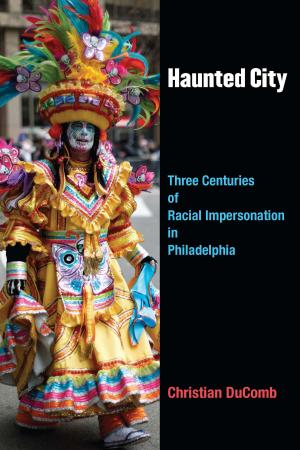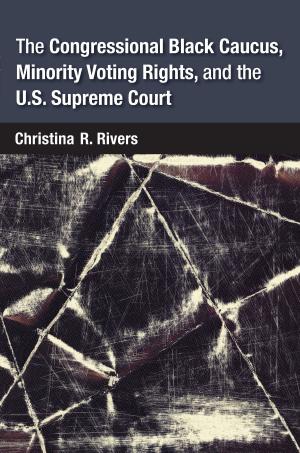Russia's Legal Fictions
Fiction & Literature, Literary Theory & Criticism, European, Nonfiction, Reference & Language, Law| Author: | Harriet Murav | ISBN: | 9780472023332 |
| Publisher: | University of Michigan Press | Publication: | May 18, 2010 |
| Imprint: | University of Michigan Press | Language: | English |
| Author: | Harriet Murav |
| ISBN: | 9780472023332 |
| Publisher: | University of Michigan Press |
| Publication: | May 18, 2010 |
| Imprint: | University of Michigan Press |
| Language: | English |
Legal scholars and literary critics have shown the significance of storytelling, not only as part of the courtroom procedure, but as part of the very foundation of law. Russia's Legal Fictions examines the relationship between law, narrative and authority in nineteenth- and twentieth-century Russia.
The conflict between the Russian writer and the law is a well-known feature of Russian literary life in the past two centuries. With one exception, the authors discussed in this book--Sukhovo-Kobylin, Akhsharumov, Suvorin, and Dostoevsky in the nineteenth century and Solzhenitsyn and Siniavskii in the twentieth--were all put on trial. In Russia's Legal Fictions, Harriet Murav starts with the authors' own writings about their experience with law and explores the history of these Russian literary trials, including censorship, libel cases, and one case of murder, in their specific historical context, showing how particular aspects of the culture of the time relate to the case.
The book explores the specifically Russian literary and political conditions in which writers claim the authority not only as the authors of fiction but as lawgivers in the realm of the real, and in which the government turns to the realm of the literary to exercise its power. The author uses specific aspects of Russian culture, history and literature to consider broader theoretical questions about the relationship between law, narrative, and authority. Murav offers a history of the reception of the jury trial and the development of a professional bar in late Imperial Russia as well as an exploration of theories of criminality, sexuality, punishment, and rehabilitation in Imperial and Soviet Russia.
This book will be of interest to scholars of law and literature and Russian law, history and culture.
Harriet Murav is Associate Professor of Russian and Comparative Literature, University of California at Davis.
Legal scholars and literary critics have shown the significance of storytelling, not only as part of the courtroom procedure, but as part of the very foundation of law. Russia's Legal Fictions examines the relationship between law, narrative and authority in nineteenth- and twentieth-century Russia.
The conflict between the Russian writer and the law is a well-known feature of Russian literary life in the past two centuries. With one exception, the authors discussed in this book--Sukhovo-Kobylin, Akhsharumov, Suvorin, and Dostoevsky in the nineteenth century and Solzhenitsyn and Siniavskii in the twentieth--were all put on trial. In Russia's Legal Fictions, Harriet Murav starts with the authors' own writings about their experience with law and explores the history of these Russian literary trials, including censorship, libel cases, and one case of murder, in their specific historical context, showing how particular aspects of the culture of the time relate to the case.
The book explores the specifically Russian literary and political conditions in which writers claim the authority not only as the authors of fiction but as lawgivers in the realm of the real, and in which the government turns to the realm of the literary to exercise its power. The author uses specific aspects of Russian culture, history and literature to consider broader theoretical questions about the relationship between law, narrative, and authority. Murav offers a history of the reception of the jury trial and the development of a professional bar in late Imperial Russia as well as an exploration of theories of criminality, sexuality, punishment, and rehabilitation in Imperial and Soviet Russia.
This book will be of interest to scholars of law and literature and Russian law, history and culture.
Harriet Murav is Associate Professor of Russian and Comparative Literature, University of California at Davis.















